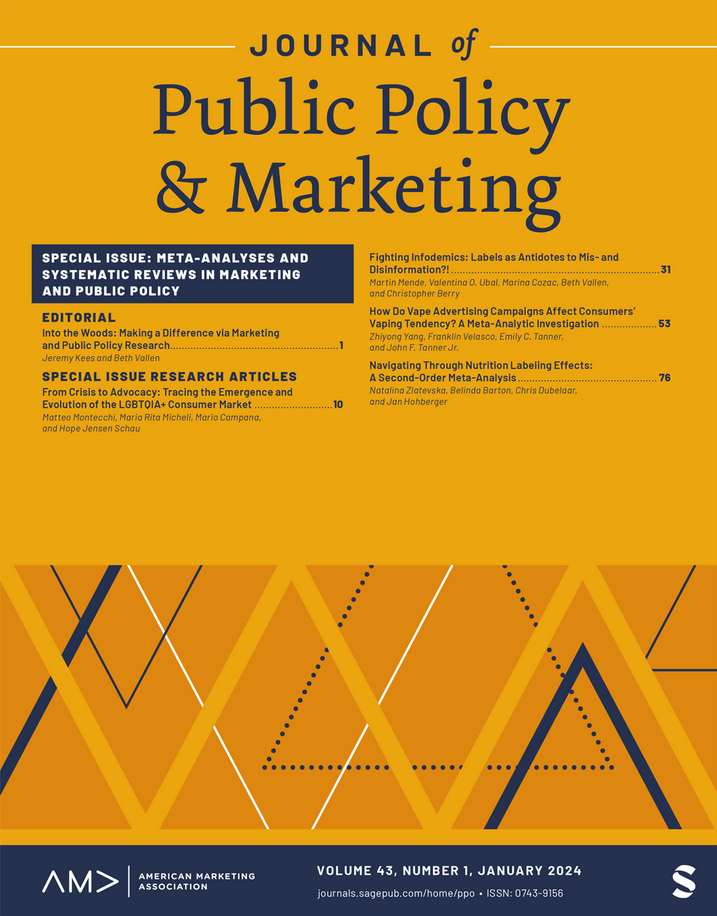Framings of Food Waste: How Food System Stakeholders Are Responsibilized in Public Policy Debate
IF 4.7
3区 管理学
Q1 BUSINESS
引用次数: 16
Abstract
Food waste is a global sustainability issue that demands that multiple stakeholders participate in solving it. This article examines how different food system stakeholders are held responsible in the policy debate related to food waste reduction. The study adopts a framing approach, paying attention to the construction and negotiation of what is going on in the food waste–related public policy debate. The data consist of documents generated as a result of food policy development processes in Finland. The authors identify four framings—eco-efficiency, solidarity, safety, and appreciation—within which the issue of food waste is presented differently and different stakeholders responsibilized. The framings reveal the nature of food waste as a boundary object, a flexible and open-ended object that has different context-dependent meanings. The study extends marketing literature on responsibilization by investigating several stakeholders beyond consumers. Additionally, considering food waste a boundary object sheds light on how stakeholders, even those with conflicting interests, can debate policy measures collaboratively. Finally, the authors outline policy implications related to each framing.食物浪费的框架:食品系统利益相关者如何在公共政策辩论中承担责任
食物浪费是一个全球性的可持续性问题,需要多方利益相关者参与解决。本文探讨了不同的粮食系统利益相关者如何在与减少粮食浪费有关的政策辩论中承担责任。本研究采用框架方法,关注食物浪费相关公共政策辩论中正在发生的事情的构建和谈判。这些数据由芬兰粮食政策制定过程产生的文件组成。作者确定了四个框架——生态效率、团结、安全和欣赏——在这些框架中,食物浪费问题以不同的方式呈现,不同的利益相关者负有责任。这些框架揭示了食物垃圾作为边界对象的本质,这是一个灵活和开放的对象,具有不同的上下文依赖意义。该研究通过调查消费者以外的几个利益相关者,扩展了责任营销文献。此外,将食物浪费视为一个边界对象,有助于阐明利益相关者(即使是那些利益冲突的人)如何协同讨论政策措施。最后,作者概述了与每个框架相关的政策含义。
本文章由计算机程序翻译,如有差异,请以英文原文为准。
求助全文
约1分钟内获得全文
求助全文
来源期刊

Journal of Public Policy & Marketing
BUSINESS-
CiteScore
10.20
自引率
15.40%
发文量
29
期刊介绍:
Journal of Public Policy & Marketing welcomes manuscripts from diverse disciplines to offer a range of perspectives. We encourage submissions from individuals with varied backgrounds, such as marketing, communications, economics, consumer affairs, law, public policy, sociology, psychology, anthropology, or philosophy. The journal prioritizes well-documented, well-reasoned, balanced, and relevant manuscripts, regardless of the author's field of expertise.
 求助内容:
求助内容: 应助结果提醒方式:
应助结果提醒方式:


